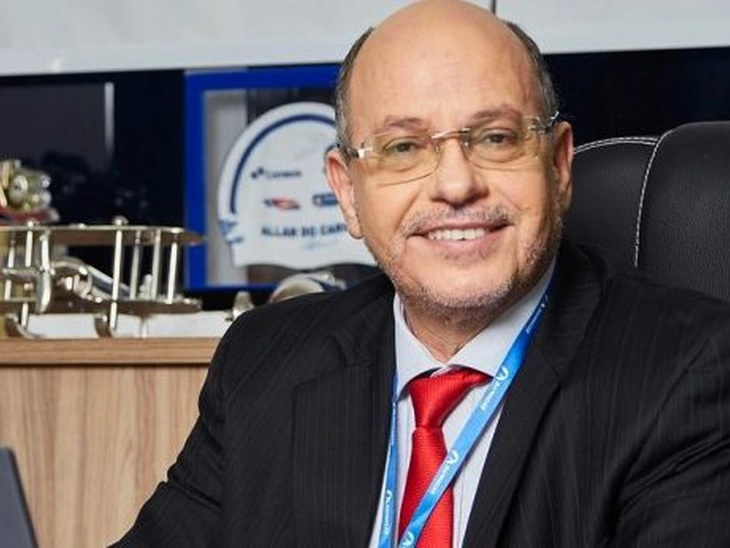
 Bahiagás
Bahiagás
T&B Petroleum/Press Office

Coverage sponsorship
In the special series TN Conecta, TN Petróleo spoke with Luiz Gavazza, CEO of Bahiagás (pictured), during the Bahia Oil & Gas Energy event held in Salvador. In an exclusive interview, Gavazza emphasized Bahia’s historic leadership in Brazil’s oil and gas industry, as well as the company’s ongoing expansion investments, as Bahiagás celebrates three decades of operation this year.
“This is the realization of a dream. Bahia is the state where the oil and gas industry in Brazil was born,” said Gavazza when commenting on the importance of the event. For him, Bahia Oil & Gas Energy has already established itself as a key platform for business and innovation in the sector, bringing together the main players in the natural gas value chain. “This third edition is an absolute success, and we are proud that Bahiagás helped make this event a reality.”
Gavazza took the opportunity to reflect on Bahiagás’ journey, as the company turns 30 years old in 2025. He recalled the major challenge the company faced from the beginning: serving a state as vast and industrially diverse as Bahia.
“From the start, we already had the Camaçari industrial complex as a client, with its strong chemical and petrochemical industry, which is a major consumer of natural gas,” he explained. This high industrial demand initially limited expansion into other segments: “We only reached the residential market in 2004, ten years after beginning operations.”
Today, however, Bahiagás is the third-largest distributor in Brazil by number of residential customers, serving over 90,000 users. Despite operating in just 22 municipalities, the company serves more than 50% of Bahia’s industrial GDP.
To further expand coverage across the state, Bahiagás is investing in a robust inland expansion plan. “We’re building local distribution networks, launching public calls for biomethane supply, and executing major projects like the Southwest Pipeline Project,” Gavazza stated.
One key milestone is the company’s arrival in Brumado, home to a major mining hub that includes Magnesita and companies like Ibache and Lolite. The third most efficient vanadium mine in the world is now on track to become the most efficient, powered by natural gas.
Another priority is agribusiness. “Especially in western Bahia, where grain production dominates, and the northwest, with fruit cultivation. Bahia now produces award-winning wines and sparkling wines recognized nationally,” he added. In these regions, biomethane is the focus. A project submitted in the company’s recent public call is the result of a consortium between Bahiagás and Agrovale, one of the country’s largest sugar producers.
“If viable, we could have Brazil’s first green microregion in Juazeiro, within two years,” Gavazza announced.
When asked about sustainability efforts, Gavazza reaffirmed Bahiagás’ commitment to ESG principles. “We operate under a public concession and fully comply with safety, environmental, and regulatory standards. From the beginning, we’ve prioritized safety, environmental responsibility, and sustainability in our operations,” he explained.
The company currently distributes about 5 million cubic meters of natural gas per day, contributing to an annual reduction of 1.4 million tons of carbon emissions. “At Governor Jerônimo Rodrigues’ request, we ran the numbers. That’s equivalent to planting 8.6 million trees,” Gavazza revealed.
Bahiagás also has an active ESG committee, coordinated by the company’s General Secretariat, and is focused on generating a positive environmental impact while strengthening the state’s energy security.
Watch the full interview (in Portuguese) now on our YouTube channel.
Contact us